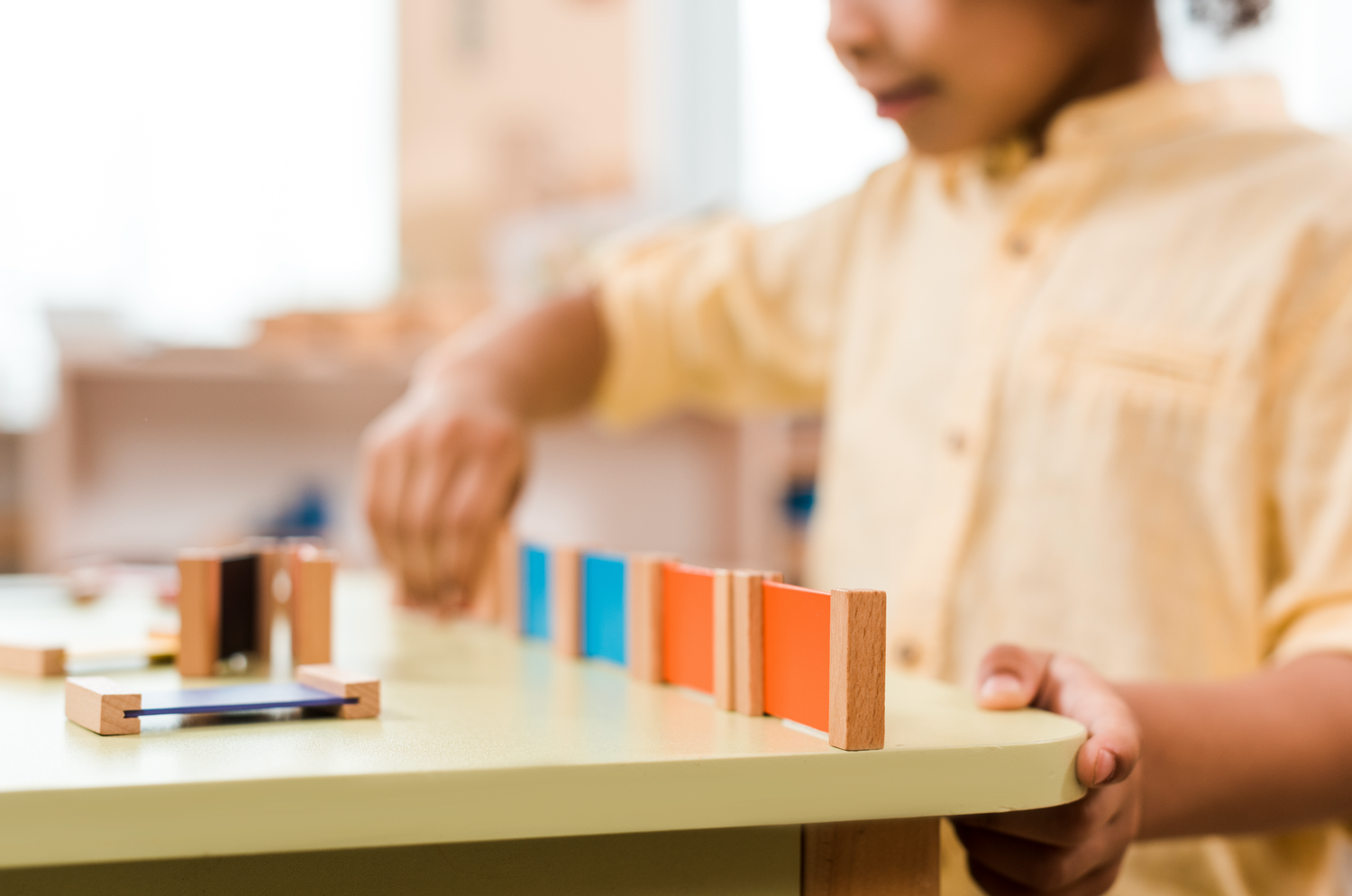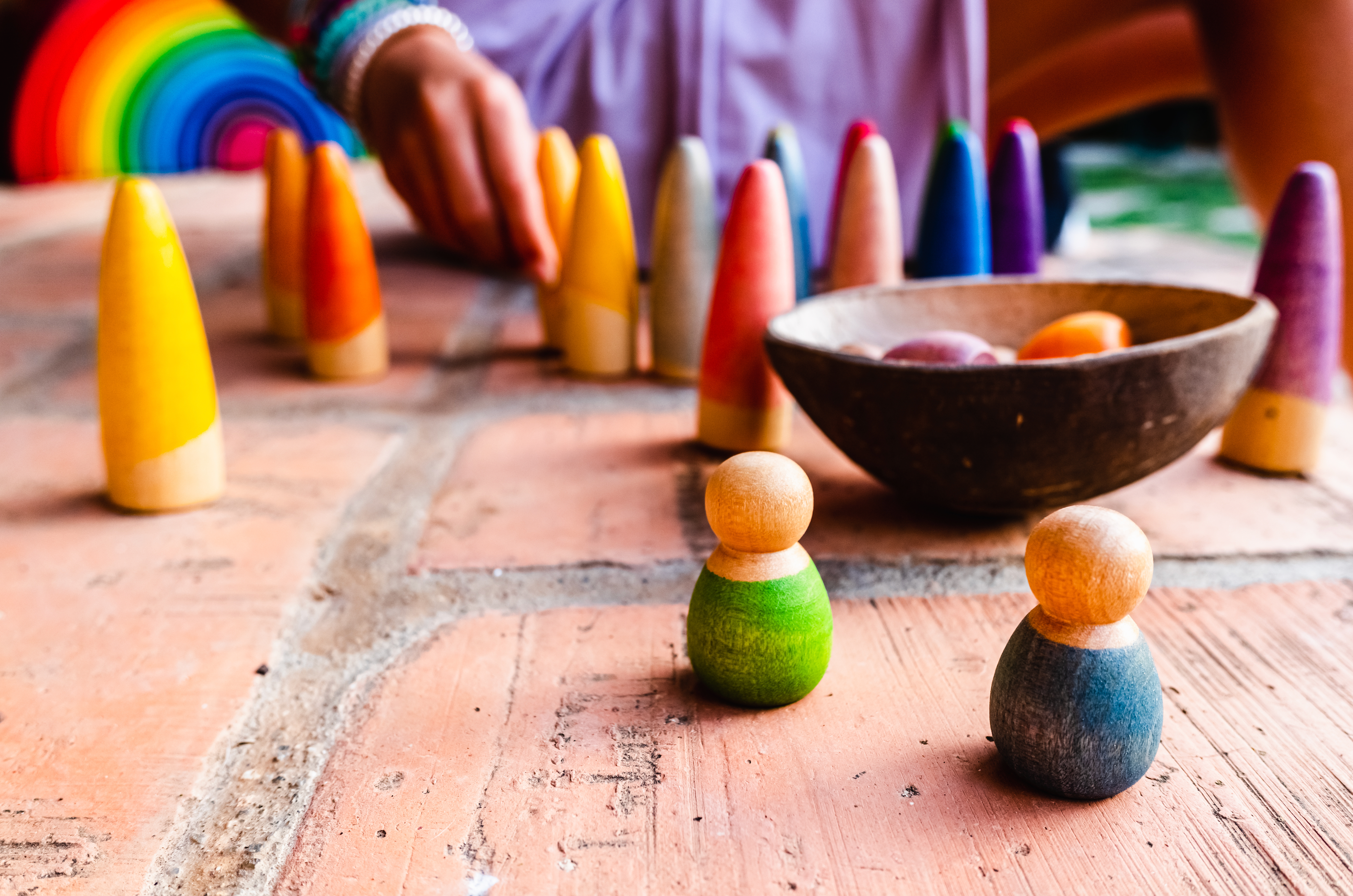Early childhood is a critical period for cognitive, emotional, and physical development. During these formative years, the experiences and environments children are exposed to play a significant role in shaping their future. Montessori education, a child-centered approach developed by Dr. Maria Montessori, emphasizes hands-on learning, self-directed activity, and collaborative play. Montessori toys are designed to support this educational philosophy, offering numerous benefits that contribute to a child's holistic development.
What Are Montessori Toys?
Montessori toys are educational tools that align with the Montessori method of teaching. These toys are typically made from natural materials, such as wood, and are designed to be simple yet purposeful. Unlike conventional toys, which may be noisy and overstimulating, Montessori toys are often quiet and encourage concentration. They are designed to help children develop specific skills, such as fine motor skills, hand-eye coordination, problem-solving, and sensory perception.
Benefits of Montessori Toys
-
Promote Independence and Self-Confidence Montessori toys are designed to be self-correcting, meaning that children can determine when they have made a mistake and correct it on their own. This promotes independence and builds self-confidence as children learn to trust their abilities.
-
Enhance Fine Motor Skills Many Montessori toys require precise hand movements, which help develop fine motor skills. Activities such as threading beads, stacking blocks, and using tweezers to move objects improve dexterity and hand-eye coordination.
-
Encourage Concentration and Focus Montessori toys are often designed to be engaging and require sustained attention. By playing with these toys, children learn to focus on a task for an extended period, which is a valuable skill for academic success.
-
Foster Creativity and Imagination Open-ended Montessori toys, such as building blocks and art supplies, allow children to use their imagination and creativity. These toys do not have a predetermined use, so children are free to explore and create in their unique ways.
-
Support Cognitive Development Montessori toys often involve problem-solving and critical thinking. Puzzles, sorting games, and matching activities help develop cognitive skills such as pattern recognition, sequencing, and logical thinking.
-
Promote Sensory Exploration Many Montessori toys are designed to engage the senses. For example, toys with different textures, sounds, and weights help children develop their sensory perception. This sensory exploration is crucial for brain development and helps children make sense of the world around them.
Recommended Montessori Toys for Different Age Groups
-
Infants (0-12 months)
- Soft, textured balls for sensory exploration
- Simple wooden rattles to encourage grasping
- Mobiles with high-contrast colors to stimulate visual development
-
Toddlers (1-3 years)
- Stacking blocks to develop fine motor skills
- Shape sorters to promote problem-solving
- Wooden puzzles for cognitive development
-
Preschoolers (3-5 years)
- Bead threading sets to enhance hand-eye coordination
- Counting beads for early math skills
- Art supplies to foster creativity
-
Early School Age (5-7 years)
- Building sets to encourage engineering skills
- Geography puzzles to introduce world concepts
- Science kits for hands-on experimentation
How to Incorporate Montessori Toys into Daily Play
-
Create a Prepared Environment Designate a specific area in your home for Montessori activities. This space should be organized, clutter-free, and stocked with a variety of Montessori toys. Low shelves and accessible storage encourage children to choose and return toys independently.
-
Follow the Child's Interests Observe your child's interests and choose toys that align with their natural curiosity. If your child shows an interest in animals, for example, provide animal figurines and books about wildlife.
-
Encourage Self-Directed Play Allow your child to explore the toys at their own pace without interference. Resist the urge to provide instructions or correct mistakes immediately. Instead, let your child learn through trial and error.
-
Rotate Toys Regularly To keep your child's interest and prevent boredom, rotate the available toys every few weeks. This keeps the play environment fresh and engaging.
Conclusion
Montessori toys are more than just playthings; they are essential tools for early childhood development. By incorporating these toys into your child's daily routine, you can support their growth in multiple areas, from fine motor skills to cognitive abilities. Investing in Montessori toys is an investment in your child's future, providing them with the foundation they need for lifelong learning and success.
By understanding the importance of Montessori toys and integrating them into your child's playtime, you can create a nurturing and enriching environment that fosters development, creativity, and joy.




Leave a comment
This site is protected by hCaptcha and the hCaptcha Privacy Policy and Terms of Service apply.